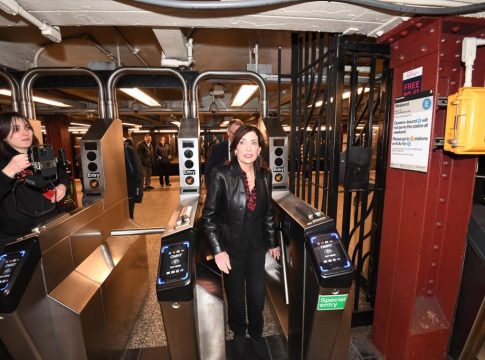New York’s Fare Evaders: A Growing Concern Amid Calls for Tougher Enforcement
New York City’s Rising Crime Tide
As crime rates surge across New York City, a contentious political debate unfolds among candidates vying for the Democratic mayoral nomination. Key figures, including former governor Andrew Cuomo and Zohrab Mamdani, have uniformly opposed increasing penalties for fare evasion, raising alarms among law enforcement officials and concerned citizens alike.
Soft-on-Crime Policies Criticized
Critics accuse these politicos of neglecting the public’s safety, suggesting they prioritize progressive policies over the pressing needs of law-abiding residents. Former NYPD Commissioner Ray Kelly argues that robust enforcement of fare evasion is crucial for ensuring the safety of subway riders. “In previous administrations, proactive fare evasion enforcement has been a powerful tool in reducing overall subway crime,” he stated.
According to reports, about 45% of those arrested for fare evasion this year were already wanted for other offenses, underscoring the connection between simple fare evasion and more serious criminal behavior. With nearly half of bus riders and 14% of subway users failing to pay their fares, the Metropolitan Transportation Authority (MTA) faces an annual revenue shortfall of around $800 million.
The Political Landscape and Future Implications
Governor Kathy Hochul’s proposed congestion pricing scheme, aimed at offsetting these financial losses, has drawn criticism for placing an undue burden on working-class commuters. President Donald Trump, during a meeting with Hochul, remarked, “If you let the police do their job against turnstile jumpers, congestion-pricing revenue isn’t needed.”
Despite the legal framework that deems fare evasion a Class A misdemeanor, arrests are rare, and district attorneys frequently opt not to prosecute. Calls for a tougher stance on fare evasion have been echoed by MTA officials and various advocacy groups, yet recent data shows fare evasion rates have doubled since 2019, coinciding with a 14% uptick in subway violence.
Looking Ahead: The Need for Action
The growing tolerance for fare evasion is part of a larger trend among Democratic leaders, culminating in efforts to decriminalize fare evasion entirely. Critics warn that such moves undermine public safety and normalize criminal behavior. As the city prepares for upcoming elections, law enforcement officials and concerned citizens urge voters to seek leaders willing to take a firm stance on crime.
Prominent voices advocating for stronger enforcement, such as Democratic Mayor Eric Adams and Republican candidate Curtis Sliwa, emphasize that allowing fare evasion to slide contributes to a broader culture of lawlessness. The emphasis now shifts to whether the electorate will demand accountability and prioritize safety as immediate needs.
As New Yorkers navigate a complex landscape of rising crime and political maneuvering, the necessity for decisive action on fare evasion has never been clearer.

Focuses on crime, public safety, and regional events.
Bio: Marcus is a community-based journalist passionate about reporting impactful stories that matter most to readers.

